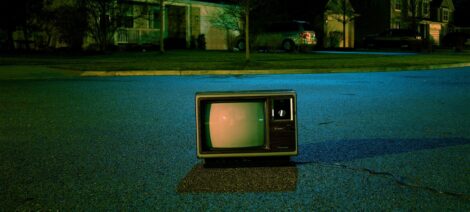A turning point in America
It was a week before Thanksgiving Day in 1963. I was halfway through my shift at the punch press at Waterloo Register. A manager came up to me on the assembly line and said, “JFK was shot.”
I was 30 years old, moonlighting at the furnace factory to make ends meet between my other jobs as a state legislator and family farmer. Five years later, I was finishing hog chores on the farm late in the day. I heard the news about Martin Luther King Jr.’s assassination on the radio. Just two months after that, Robert F. Kennedy was assassinated in California.
The murders of these political leaders call to mind the words of Abraham Lincoln in his address to Congress in July 1861. In an appeal to prevent civil war, he said “ballots are the rightful and peaceful successors of bullets.” Four years later, our 16th president was killed by an assassin’s bullet.
A century after Lincoln’s assassination, America found itself mired in another era of societal reckoning and political violence. Public protests rallied for the civil rights movement and railed against the Vietnam War. Despite the tragic assassinations of prominent political leaders during the 1960s, I never doubted America would pull through.
The resilience of our American experiment is once again being tested. The brutal murder of a charismatic young political leader has left our nation in mourning. Charlie Kirk’s political assassination is another turning point in U.S. history.
In many corners of our country, social cohesion is threadbare. The lessons of history can light our path forward.
In the last 15 years, I’ve seen the coarsening of civic life and how partisan fault lines have further divided Americans. Unlike the social unrest in the 1960s, today’s schism is inflamed by social media that breeds intolerance and distrust among neighbors. Chatting behind screens instead of rubbing elbows at community events exacerbates polarization and fuels politics as a bloodsport. In recent years, the Kavanaugh hearings, Black Lives Matter riots, Jan. 6, War on Cops and anti-ICE protests reflect America’s polarization.
The lifeblood of our republic is rooted in our constitutional freedoms and system of self-government. Dialogue is the essence of civic engagement. My annual 99 county meetings allow me to foster this dialogue. For 45 consecutive years, my Q&A format has stayed the same. Iowans set the agenda, and no topic is off limits. I’ve long encouraged people to discuss politics and religion. It’s a mistake to allow these two very important issues to become taboo among neighbors. The anonymity of internet chat rooms has poisoned the waters of political discourse, giving agency to radicalized ideology and the dehumanization of others. That breeds political violence and undermines the sacred freedoms of a free and just society.
Charlie Kirk personified free speech. He disrupted the political orthodoxy on college campuses with a refreshing dose of the First Amendment.
College campuses ought to foster an intellectual environment with open dialogue, not silo students into “safe spaces” that prevent them from analyzing and respecting values and ideas unlike their own. In 2017, I led a Senate Judiciary Committee hearing on this very subject. Earlier that year, a Stanford University provost gave a speech lamenting the intellectual monocultures brewing in universities, saying there is an “intellectual intolerance, a political one-sidedness, that is the antithesis of what universities should stand for.” On the Senate floor, I called on college administrators to honor the legacy of Robert Zimmer, the former University of Chicago president who championed the idea that college campuses ought to be the place where ideas run rampant.
That’s exactly what Charlie Kirk pursued. He empowered young people to speak freely, including his fiercest critics. Without fear or favor, he welcomed young Americans to an open microphone to challenge his ideas. Perhaps more importantly, he debated with civility and respect and galvanized a generation of young people to stand up for their beliefs.
His grievous assassination has stained the fabric of our free and open society. As we look ahead to the 250th anniversary of our nation’s founding, every American ought to look in the mirror and meet this moment. Ask yourself: Am I living the Golden Rule?
It’s our duty as Americans to carry forward our rich inheritance of freedom from one generation to the next. As president pro tempore, it’s an honor to open the Senate by leading the Pledge of Allegiance that affirms our bond as Americans, no matter one’s political party. From one generation to the next, citizens have recited this patriotic oath in schools and civic meetings, pledging fidelity to our “indivisible” republic.
History shows our republic has weathered the storms of political violence. Political polarization is poisoning civic life in the first quarter of the 21st century. We must rise above it.
At his first inaugural address, Lincoln recognized our 85-year-old republic was at a turning point. He called on Americans to tap into the “mystic chords of memory” that bind us as friends, not enemies. In honor of Charlie Kirk’s legacy, let’s commit ourselves to heed our “better angels” and love thy neighbor.
—–
Charles Grassley, a Republican from New Hartford, represents Iowa in the United States Senate.

